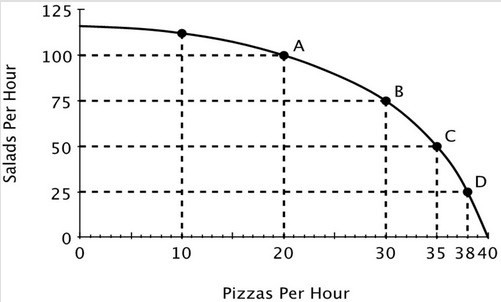A citizen in a developing country with a currency policy of convertibility on the current account could engage in all of the following transactions except:
A. sell foreign currency resulting from the exports of manufactured t-shirts.
B. sell foreign currency resulting from the sale of a U.S. treasury bond.
C. purchase foreign currency in order to import a BMW.
D. purchase foreign currency in order to purchase a U.S. treasury bond.
Answer: D
You might also like to view...
Regarding short-range exchange rate movements, which of the following statements is NOT true?
a. they may vary from week to week b. they may vary from hour to hour c. are similar to those of the transaction demand determinants of long-term trends in exchange rates d. determined by arbitrage activity e. both a and b are false
Refer to the accompanying figure. The opportunity cost of making an additional salad:
A. decreases as the number of salads increases. B. increases as the number of salads increases. C. decreases as the number of pizzas decreases. D. remains constant regardless of how many salads are made.
A country undertakes a devaluation in order to:
A. increase its net exports. B. decrease its net exports. C. raise the value at which its currency is pegged. D. move to a flexible exchange rate system.
Why would a bumper crop be bad news for farmers?
A. Their crop has an inelastic demand and the resulting drop in price reduces their total revenue. B. Their crop has an elastic demand and the resulting drop in price reduces their total revenue. C. Their crop has an inelastic demand and the resulting drop in price raises their total revenue. D. Their crop has an elastic demand and the resulting drop in price raises their total revenue.